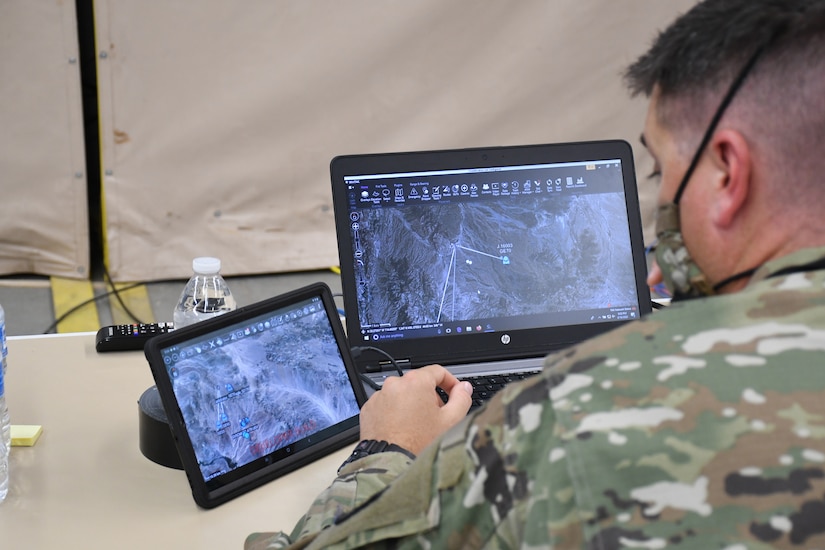Nov. 3, 2020 | , DOD News
At its simplest, the Defense Department's new data strategy, released in September, aims to make it easier for users to get access to the data they need to do their job. At the center of that, however, are the warfighters and decision makers who are most reliant on critical, accurate and timely data to carry out the department's mission, said the department's chief data officer.

"This strategy is for warfighters and decision makers," said David Spirk, who spoke Oct. 28 at the National Defense Industrial Association. "It's 100 percent focused on improving the speed and execution of decisions — to support informed decision making, to improve situational awareness and knowledge at every level, to improve our ability to anticipate events and resource needs before they were known."
To ensure the fastest, smoothest distribution of data to warfighters, decision makers, and even artificial intelligence systems, the DOD data strategy lays out a plan to, among other things, standardize how data is collected, categorized, tagged and distributed.

The strategy sets goals for the department to build a data environment that makes it easy for would-be users of data to not only find what data they need, but to also get access to it — wherever that is. That data must also be adequately described in language that is standardized across the department, so that would-be users can easily identify its relevance to their portion of the mission.
Also important within the strategy is that data be trustworthy. The strategy calls for development of standards to ensure that when users get ahold of data, for instance, it's always accompanied by additional, standardized information that makes it clear where that data came from.

The strategy demands a lot of changes from those across the department who collect, generate and maintain data, so that users in other areas can always have what they need, when they need it. Spirk said getting those people on board will be critical to the success of the data strategy.
One way to do that, he said, is creation of chief data officer positions, where appropriate, to ensure the data strategy is being implemented and, also, to build relationships and trust between agencies so that data can move to where it needs to be more efficiently than it may be doing now.

Spirk said the department will know it has been successful in implementing its data strategy by how the warfighter responds.
"The measure of our success is going to be a recognizably faster warfighting operation tempo," he said. "This will be achieved by treating data as a weapon system, effective partnerships and a collective focus. And when I say weapon system, I mean we need to think of the data ecosystem as the weapon system that fires the data and ensures it's available to our warfighters at the time and place they need it before they realize that they did."








No comments:
Post a Comment